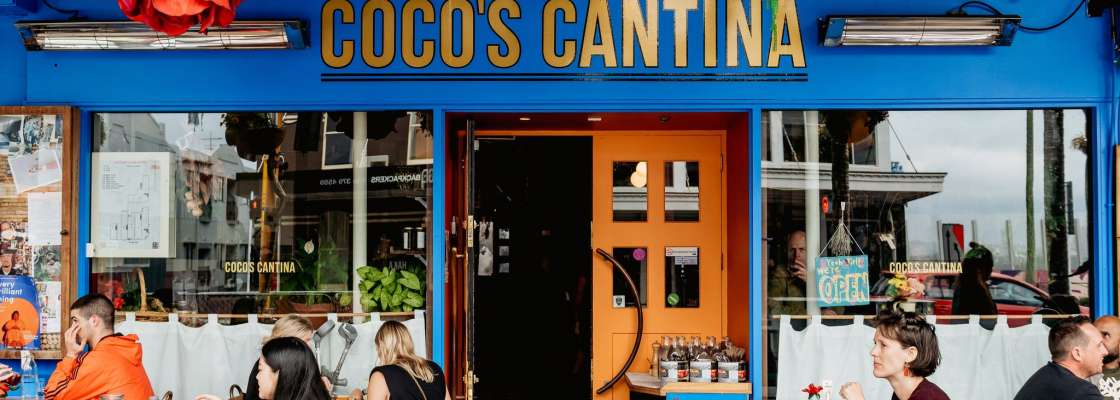5 August 2025
Hon. Scott Simpson
Minister of Commerce and Consumer Affairs
Parliament Buildings
Wellington
Tēnā koe Minister Simpson
Hospitality industry response to the ban on surcharges
I am writing to you on behalf of the Restaurant Association of New Zealand (the Restaurant
Association), the largest representative body for restaurants and cafés in New Zealand, regarding your
recent announcement of a ban on surcharges for in-store payments.
Over the past year, we have been actively engaged with officials from the Commerce Commission on
reforms to our retail payments system, so we were shocked to find out about this policy shift through
the media despite having met with officials from the Commerce Commission less than a week prior to
the announcement being made.
While we are supportive of efforts to make payments clearer and more affordable for consumers — our
customers — we are extremely disappointed by the ongoing commentary which perpetuates the
incorrect narrative that surcharges are a way for businesses to “swindle” their customers for more
money, and the misleading insinuation that businesses have nothing to worry about as a result of this
announcement.
Capping interchange fees
We are concerned by your answers to patsy questions about the impact of these changes on small
businesses in the House last week. Your comments suggested that, because the ban on surcharges is to
be implemented in conjunction with the Commerce Commission’s decision to cap interchange fees,
there is no need for concern.
While the fees that businesses pay to banks will be reduced, they have not been removed entirely —
under your current proposal, business will be left with three options: increase prices across the board,
impacting all customers; restrict the use of certain payment methods, potentially limiting their
customer base; or absorb these fees as a cost of doing business, eating into already slim profit margins
(an average of four percent across the hospitality industry).
The decision of the Commerce Commission to cap interchange fees also included an intent to monitor
the impact of regulating such fees, to ensure that surcharging was reduced by a commensurate
amount. In our opinion, this would have been the appropriate process to follow.
Promoting understanding of our payments system
Throughout our engagement with the Commerce Commission on the retail payments system, we have
stressed the importance of taking a holistic approach to reform — including through addressing
surcharging at the appropriate time to prevent undue negative impacts on both retailers and
consumers.
Our members were clear throughout consultation on changes to the retail payment system that if there
was a way they could remove surcharging for certain card payments without having to absorb the costs
themselves, they would do so. The idea of mitigating the provision of outstanding hospitality service by
ending the experience with a conversation around surcharging and potentially leaving a bad taste in
our customers’ mouths is not one that our industry signs up for voluntarily — it is out of necessity.
Regulating payment providers
To date, it has been our business who have had to constantly explain that the fees they are charged by
payment providers are the reason surcharges exist. While often uncomfortable conversations, they also
lead to giving customers a choice between using a payment method that incurs a surcharge, or those
that do not. The decision to ban surcharges removes that choice for consumers.
Further, throughout engagement with the Commerce Commission, it was clear that further work was
needed to ensure payment providers did not simply increase other fees paid by retailers to cover any
shortfall in their income. As it stands, the ban on surcharges leaves retailers in the lurch, required to
either increase their prices to cover costs or absorb the cost of fees, while there is no guarantee that the
actual fees they pay across our entire retail payments system will actually decrease. This must be
addressed before any further action is taken to ban surcharges.
It is important to also note that while the benefits of a cap on interchange fees are intended to be
passed on through a reduced merchant service fee, the interchange fee is only a portion of the amount
charged to retailers. The full merchant service fee is not being capped — only the interchange fee
portion of the merchant service fee — meaning businesses are still left with large fees that they will not
be able to recuperate through surcharges.
Evidence-based policy
You referred several times to overseas evidence, indicating there would be no need for businesses to
increase prices following the ban on surcharges. Notwithstanding the points we have already raised,
we submit that the Government would have been better off to wait for the reduced interchange fee
decision to take effect and gather domestic, real time evidence to determine if there was still a need to
regulate surcharges — and if so, in what form such regulation would take.
For example, it is unclear whether your current proposal to ban surcharging includes surcharging
during trade on public holidays, which goes towards covering increased wage costs provided for under
the Holidays Act. While we would advocate against such a blanket ban being implemented, any
exceptions will only add to the confusing regulatory system within which our small businesses already
operate.
I would value the opportunity to meet with you in person to discuss how we can work together in
future on this and other matters of shared importance. We remain willing and ready to collaborate on
critical work in the Commerce and Consumer Affairs portfolio, including the work initiated by your
predecessor to amend the Companies Act, which was expected to be introduced to Parliament in the
first half of this year.
Please do not hesitate to contact me directly if I can be of any assistance. I look forward to hearing from
you.
Ngā mihi nui,
Marisa Bidois
Chief Executive
Restaurant Association of New Zealand
cc Rt Hon Christopher Luxon, Prime Minister
Hon Louise Upston, Minister for Tourism and Hospitality











